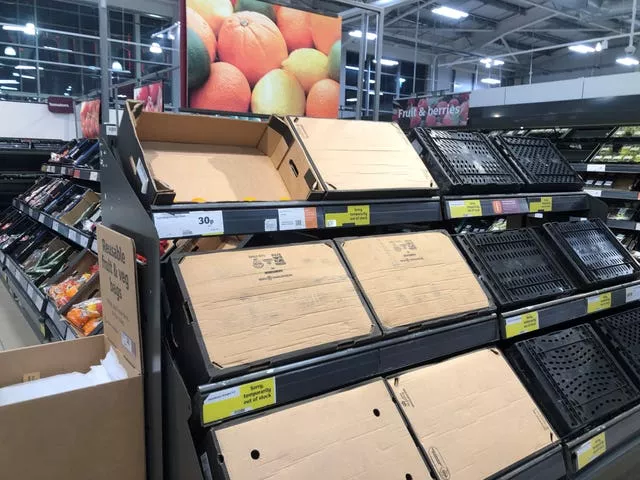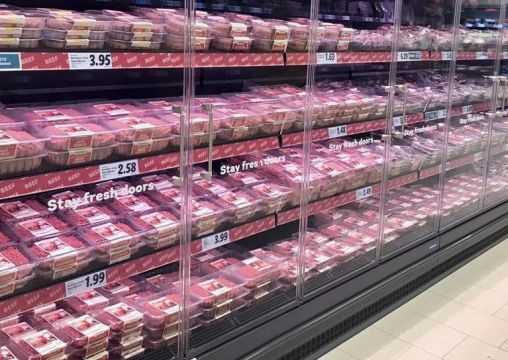Supermarket Lidl is boasting full shelves as other vendors struggle amid new Brexit trading rules in Northern Ireland.
Depleted supermarket shelves are already in evidence across the region with current lighter-touch trade controls.
Once a three-month exemption period expires, supermarkets will have to comply with more rigorous animal health certification processes under the terms of Brexit’s Northern Ireland Protocol.
Lidl said it was working with more than 50 suppliers in Northern Ireland and had been planning for Brexit for two years.
We want to wish a huge thank you to our suppliers, hauliers and own teams who, despite the current challenges, have managed to keep our shelves stocked with full product availability for our customers! pic.twitter.com/fmyPxZcViZ
— Lidl NorthernIreland (@lidl_ni) January 14, 2021
Advertisement
“Over the past 2 years, we've implemented a Brexit preparation process for our supplier network to enable them to prepare for all Brexit outcomes,” it said.
It added: “This local sourcing network and preparation has meant that we do not have any significant supply issues in relation to Brexit at present, and as such we’re confident our customers will be able to continue to shop all of their trusted Lidl products in our stores across the region.”
Manufacturing Northern Ireland, a campaigning organisation on business in the region, tweeted: “Preparation is everything”.
Preparation is everything. pic.twitter.com/TP5JNr2U1S
— Manufacturing NI (@ManufacturingNI) January 14, 2021
It comes as health and education officials in Northern Ireland have denied claims that hospitals and schools risk running out of food when post-Brexit Irish Sea trade arrangements are fully implemented.
Stormont’s Democratic Unionist agriculture minister Edwin Poots said he envisaged a major crisis when the grace period limiting the amount of red tape required to move retail food products from Britain finishes at the end of March.
Mr Poots told BBC Radio Ulster’s Nolan Show: “It was made very clear to us by the suppliers to both hospitals and schools that if the current arrangement for supermarkets isn’t extended in a few months’ time that they will not be able to supply our hospitals and schools with food.”
His critics accused him of scaremongering.
Stormont’s education department said: “At present we have no indication from our suppliers of disruption to their supply chain that would impact delivery of school meals.”
A spokeswoman for Northern Ireland’s Department of Health said the organisation which supplies hospitals had signed contracts allowing for flexibility and substitution, like a move from fresh to tinned or frozen, should that be required.
The department has not received reports from any health trusts flagging major issues involving shortages or supply difficulties.

Hauliers said challenges posed in transporting goods were reducing.
Seamus Leheny, who is Northern Ireland policy manager at Logistics UK and represents hauliers, said: “We need to get a solution in the coming days and weeks, not leaving it to March. The onus is on the government to give confidence.”
He praised the work of his members to find clarity in the days after Brexit: “Things are improving, customs processes are improving, I am getting that daily feedback.
“That is one hurdle becoming a little bit lower for people.”

Stormont first minister Arlene Foster said there should be a solution found for the end of the grace period and the matter had been raised with her agriculture minister during meetings with supermarkets.
She added: “(Mr Poots) is not saying there is an issue now, because there is not an issue in relation to schools and hospitals, but when it has been raised at various meetings we need to take it seriously and get a solution to it.”
Stormont deputy first minister Michelle O’Neill said she was glad to say that there has been a restoration of the flow and trade of food.
“I believe as of Tuesday past we were back to over 95 per cent of normal food flow so that probably would be even more improved as we speak today.”







